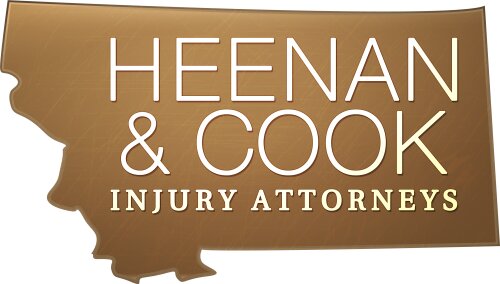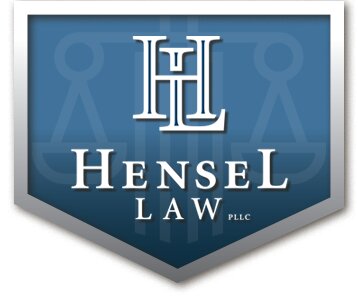Best Toxic Tort Lawyers in Billings
Share your needs with us, get contacted by law firms.
Free. Takes 2 min.
List of the best lawyers in Billings, United States
1. About Toxic Tort Law in Billings, United States
Toxic tort law covers cases where people suffer harm from exposure to hazardous substances. In Billings, residents may encounter injuries from contaminated water, air pollution, workplace exposures, or consumer products. The core idea is to hold responsible parties legally accountable for harm caused by dangerous substances.
Much of toxic tort work in Billings involves federal statutes and Montana state tort principles. Attorneys examine whether a defendant caused or contributed to exposure, whether reasonable care was taken to prevent harm, and what damages were suffered. Guidance from federal and state agencies informs the legal process and the factual record the lawyer builds for you.
Case outcomes often depend on the strength of medical proof, exposure history, and the ability to trace harm to a specific source. An experienced toxic tort attorney can help translate complex scientific information into evidence that a court can understand. This guide uses practical examples relevant to Billings to illustrate typical steps and considerations.
“Toxic tort cases rely on identifying exposure, proving causation, and establishing damages, often across complex scientific and regulatory landscapes.” - National guidance on toxic exposure and tort claims
Useful government and legal resources provide context for Billings residents, including how environmental regulation, product safety, and public health standards interact with private litigation. This guide highlights practical steps and local considerations to help you navigate a toxic tort matter.
Key takeaway for Billings residents: toxic tort actions blend environmental law, product liability, and civil injury claims. A local attorney with exposure to Montana and federal law can tailor a strategy to your situation and timeline.
For more context on the federal framework behind many toxic tort claims, see the U.S. Environmental Protection Agency (EPA) and related federal resources linked in the Local Laws Overview and Resources sections.
2. Why You May Need a Lawyer
Consider the following real-world scenarios in Billings where a toxic tort attorney can provide essential guidance and representation.
1) Groundwater contamination near a Billings industrial site. A resident develops unexplained health issues after a nearby facility leaks solvents into groundwater. An attorney can determine liability, coordinate environmental testing, and pursue cost recovery for medical monitoring and damages.
2) Inhalation exposure from a nearby paint or chemical plant. A neighbor experiences chronic respiratory problems after emissions from an industrial facility. A lawyer helps establish source identification, causation, and potential compensation for medical expenses and lost work.
3) PFAS exposure linked to firefighting training facilities in Yellowstone County. A family suspects PFAS contamination in drinking water or soil. An attorney can explore federal and state cleanup obligations and pursue damages for long-term health risks and property devaluation.
4) Asbestos or mold hazards in older Billings buildings. A tenant or worker sustains lung injury or allergies from long term exposure. A lawyer can assess liability, access medical records, and pursue compensation from landlords or manufacturers.
5) Product-related chemical exposure from consumer goods. A consumer in Billings becomes ill after using a recalled chemical product at home. An attorney can investigate product recalls, manufacturer responsibility, and potential class actions.
6) Workplace chemical exposure without adequate safety measures. An employee claims exposure due to improper ventilation or failure to enforce safety standards. A toxic tort attorney can coordinate with occupational safety records and potentially pursue a workers' compensation or civil claim.
3. Local Laws Overview
Billings residents operate under a mix of federal environmental statutes and Montana state law. The following laws and regulations are commonly cited in toxic tort matters and may influence liability, recovery, and remedies.
Comprehensive Environmental Response, Compensation, and Liability Act (CERCLA)
CERCLA, commonly known as the Superfund, governs the cleanup of hazardous waste sites and holds potentially responsible parties liable for cleanup costs and damages. The act facilitates the cleanup of contaminated properties and allows recovery from responsible parties.
Effective since 1980, CERCLA has been amended by the Superfund Amendments and Reauthorization Act (SARA) in 1986 to strengthen environmental cleanup and liability provisions. This framework often intersects with toxic tort cases where exposure stems from historical or ongoing contamination.
Resource Conservation and Recovery Act (RCRA)
RCRA regulates the generation, transportation, treatment, storage, and disposal of hazardous waste. It aims to prevent releases of hazardous substances into the environment and to manage waste safely.
First enacted in 1976 with major updates through amendments such as HSWA in 1984, RCRA creates enforcement mechanisms that can be relevant in tort claims and state environmental actions affecting Billings properties and residents.
Clean Water Act (CWA)
The Clean Water Act governs discharges of pollutants into navigable waters and sets water quality standards. It aims to restore and maintain the integrity of the nation’s waters, which can influence toxic tort claims arising from water contamination.
The CWA has undergone key amendments since its original passage in 1972, with ongoing regulatory updates affecting how pollutants are regulated and how pollution events are addressed in communities like Billings.
Recent trends to note include heightened focus on PFAS and other emerging contaminants. Federal and state agencies have increased testing, reporting, and cleanup efforts related to these substances. See EPA PFAS resources for current standards and actions.
For authoritative, jurisdiction-specific information, you can consult federal resources such as the EPA and Montana state agencies for regulatory context and enforcement actions. The links below provide official starting points for more details.
4. Frequently Asked Questions
What is toxic tort law in simple terms?
Toxic tort law covers injuries caused by exposure to hazardous substances. It includes environmental exposure, product liability, and workplace hazards handled through civil lawsuits.
How do I start a toxic tort claim in Billings?
Begin with a consultation with a local attorney who handles toxic tort cases. They will assess exposure history, medical records, and potential sources of liability.
What is the difference between toxic tort and environmental law?
Toxic tort is a private civil action for damages. Environmental law regulates public standards and enforcement, while toxic tort focuses on individual or group claims for harm.
What is the statute of limitations for toxic tort claims in Montana?
Most personal injury claims in Montana have a two-year deadline from the date of injury. Consult a Montana attorney for exceptions and discovery rules that may apply.
Do I need to show a specific source of contamination?
Yes, plaintiffs typically must identify a source or responsible party and show a credible link between exposure and injury through expert evidence.
Should I hire a local Billings attorney or a distant firm?
A local attorney understands Yellowstone County regulations, courts, and local experts. They can coordinate with local investigators and labs efficiently.
Do toxic tort cases require a lot of medical proof?
Yes, medical documentation linking exposure to injuries is essential. This includes medical records, tests, and expert opinions.
What are common costs in a toxic tort case?
Costs include attorney fees (often on a contingency basis), expert fees, investigative services, and court costs. Ask about fee arrangements early.
How long do toxic tort cases in Montana typically take?
Simple cases may resolve in months, while complex environmental or product- liability matters can take years, depending on discovery and court schedules.
Can I pursue a claim if I moved away from Billings after exposure?
Yes, it may still be possible to pursue a claim if exposure occurred in Montana or if the harm is connected to Billings grounds. An attorney can advise.
Is mediation or settlement common in toxic tort cases?
Many cases settle before trial to avoid lengthy litigation. A lawyer can negotiate favorable settlements while preserving your rights.
What should I bring to my first consultation?
Collect medical records, accident or exposure reports, job history, and any testing results. Include any related correspondence with defendants.
5. Additional Resources
Here are federal and state resources that provide official information about toxic materials, environmental health, and regulatory enforcement relevant to Billings residents.
- U.S. Environmental Protection Agency (EPA) - Superfund and hazardous substances - The EPA administers CERCLA and sets federal standards for hazardous waste cleanup and exposure prevention. https://www.epa.gov/
- Montana Department of Environmental Quality (DEQ) - State agency that enforces environmental regulations, monitors water and air quality, and provides public information about contamination and cleanup in Montana. https://deq.mt.gov/
- Montana Legislature - Official site for Montana statutes and legislative updates related to environmental regulation and civil remedies. https://leg.mt.gov/
“CERCLA and RCRA frameworks underpin many toxic tort actions by defining cleanup responsibilities and liability for hazardous substances.” - EPA and state guidance
6. Next Steps
- Document exposure evidence: gather medical records, test results, property records, and any incident reports. Create a timeline of events and suspected sources.
- Identify local toxic tort attorneys: search for Billings-based or Yellowstone County lawyers who specialize in environmental or product liability matters. Schedule initial consultations.
- Prepare questions for consultations: ask about fees, past outcomes in similar cases, and how they will approach environment-related causation issues.
- Obtain a case assessment: have the attorney review the facts, potential sources of liability, and the strength of medical evidence. Expect a plan with next steps.
- Assess regulatory and investigative steps: discuss whether state or federal agencies should be notified or involved in data collection and site assessments.
- Review potential damages: discuss medical costs, lost wages, property damage, and pain and suffering. Consider future medical monitoring as needed.
- Decide on a strategy and retain counsel: if you proceed, agree on a contingency fee arrangement and a clear timeline for filings and discovery. Plan for regular updates.
Lawzana helps you find the best lawyers and law firms in Billings through a curated and pre-screened list of qualified legal professionals. Our platform offers rankings and detailed profiles of attorneys and law firms, allowing you to compare based on practice areas, including Toxic Tort, experience, and client feedback.
Each profile includes a description of the firm's areas of practice, client reviews, team members and partners, year of establishment, spoken languages, office locations, contact information, social media presence, and any published articles or resources. Most firms on our platform speak English and are experienced in both local and international legal matters.
Get a quote from top-rated law firms in Billings, United States — quickly, securely, and without unnecessary hassle.
Disclaimer:
The information provided on this page is for general informational purposes only and does not constitute legal advice. While we strive to ensure the accuracy and relevance of the content, legal information may change over time, and interpretations of the law can vary. You should always consult with a qualified legal professional for advice specific to your situation.
We disclaim all liability for actions taken or not taken based on the content of this page. If you believe any information is incorrect or outdated, please contact us, and we will review and update it where appropriate.










